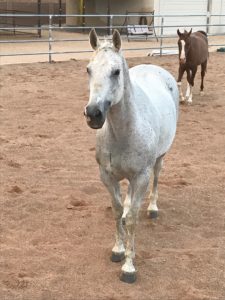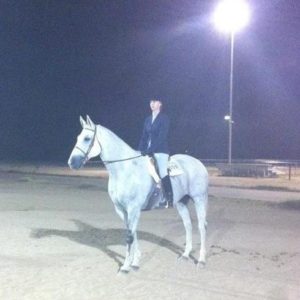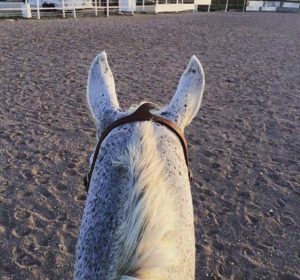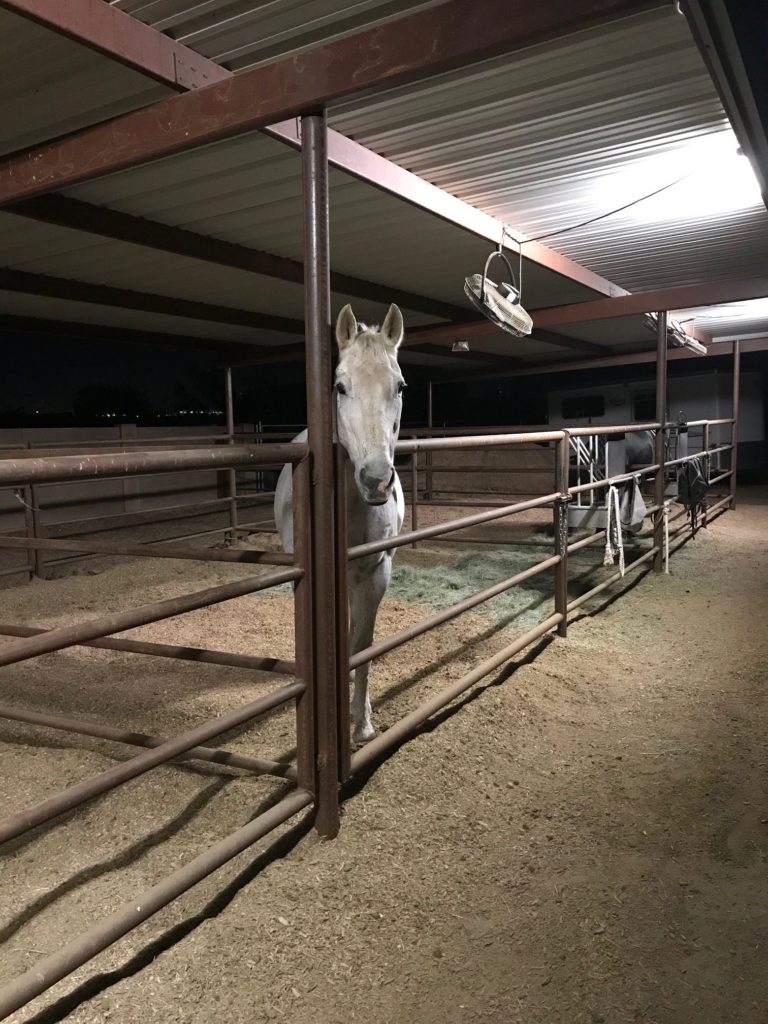 Senior Horse Life
Senior Horse Life
All humans and creatures age. It is part of nature, part of life. There are factors to consider with all aging people and animals,but that doesn’t mean life is over. Senior horses need proper care and nutrition. They can also be useful and still have a job to do – which many horses like.
Horses are creatures of habit and routine, and creating a dependable and comfortable environment and routine for them is one of the best steps to take.
The Age of Seniors
What age is a horse considered “senior”? There are no definitive definitions for a senior horse, but many sites suggest a senior horse is a horse that is 15 years and older.
Many equines live well in into their late 20’s and some even in to their 30’s. There are even a few records of horses living into their 40’s.
Genetics, health, and their environment all play factors into the life span of a horse, just as they do for humans.
Senior Care and Feed
As horses age their dietary needs may change.
A horse’s teeth may become to worn or it might be missing teeth- making it difficult to eat hay. Senior horse feeds are created with a horse’s protein needs in mind, especially if eating forage is no longer an easy task.
NOTE** forage should be offered as the main staple in a horse’s diet unless it cannot physically be able to chew it.
Wetting feed such as alfalfa cubes or bran mashes can help with eating and digestion for senior horses. If you notice your senior horse dropping chunks of unchewed hay out of its mouth, you might want to consider feeding wetted cubes instead.
Also, be sure to get their teeth inspected annually by your vet. Sometimes senior horse’s teeth need filed to avoid excessive “waving” of the teeth or to eliminate sharp points.
It is recommended that a senior horse be fed less sugar. Choose feeds high in protein or high in fats if your horse needs to gain weight. It is common for senior horse to lose weight. Talk to your vet and see what they suggest, and consider adding a senior feed in addition to forage to help.
Senior Jobs
Senior horse that are in good health can be used for many jobs. Older horse are great to use to “pony” younger horses around. This is fantastic training for youngsters to see a human above them which can be useful when you ride them the first time.
Many show horses are well into their teens and 20’s. They receive good joint supplements and can still be ridden. They make great amateur and junior horses because they have experience in the show ring and are less likely to be nervous.
Older horses also make wonderful lesson horses or therapeutic riding horses. Lesson and therapeutic horses should be able to have people standing on either side while a rider is on their back. It is beneficial if they can withstand loud noises and some commotion as well as work alongside other horses- particularly in group lessons.
You can begin implementing these practices with your horse now. Desensitizing your horse to people, other horses and loud sounds will open options as therapeutic or as a lesson horses when they get older.
Older horses can make great trail horses or even serve as a lead trail horse. They are also good companion animals for other horses too.
Depending on the horse’s mobility and health, senior horse can do many things in their late years.
 What to Consider for Your Senior Horse
What to Consider for Your Senior Horse
There are some key factors to consider when owning a horse. What is your plan for this animal? Do you plan to keep them or sell them? Will they retire with you and move on to a second career where they can still be used? Will they stay with you until the end?
If a horse is healthy they can be used in any of the mentioned alternatives when they get older. If they suffer from arthritis or can no longer be ridden, there are retirement farms available specifically for such horses. They can also be used as companion animals or they can be used to teach people who are unfamiliar with horses how to groom and care for a horse.
There comes a time when the owner or keeper of an older horse must consider how they will handle a horse’s passing. While it is a difficult subject to think about, preparation for such a time will benefit all.
Horses can be buried or cremated. Burials will need a tractor or heavy equipment of some sort to help create the burial area. If you do not own such equipment, you can rent items or reach out to neighbors or companies in the area that can either lend you the equipment and perhaps even do it for you.
Keep in mind that some areas do not allow such large-sized animal burials due to land restrictions. If you board your horse, do not assume the owner will bury the horse on the property. They may not have the space or may not legally be able to do so.
There are many companies that can be found online that can remove the horse carcass for you to either a burial site or crematory.
There are companies that also cremate pets, including cats, dogs, and horses. It can be an expensive option, but there are many that offer different price ranges. Lovely, ornate boxes, urns, and chests can be purchased to keep the remains if you so desire.
It is best to have a plan. Large animals pose a challenge to either bury or cremate. Look into price options, burial sites and options and crematory options near you. Having such a plan in place will make an already difficult situation a little less stressful.
Memory Lane
 Horses can touch our lives in a way many other humans cannot. A horse can be memorialized in ways that highlight the place they have held in your heart.
Horses can touch our lives in a way many other humans cannot. A horse can be memorialized in ways that highlight the place they have held in your heart.
Keepsakes are excellent ways to preserve the memory of your equine friend. Items such as a horseshoe, pictures, braided pieces of mane or tail, their halter, a bit, show ribbons, or a name plate can be used.
Shadow boxes are some of the most popular ways to memorialize your horse. A halter with pictures and ribbons portray the highlights of you and your pony.
Framing a stall or bridle nameplate or a piece of their braided mane or tail can also offer a loving tribute to your equine friend. Necklaces and bracelets can be made out of such items as loving reminders of your time together.
Other memorial ideas can be things such as picture frames, engraved picture frames, carved stones or headstones, picture books, or tributes such as scholarships, naming a barn or arena after them, etc.
Life as an older horse doesn’t necessarily mean they are useless. Senior horses have put in full lives and have seen and experienced many things. Some can continue competing well into their senior years, while others may need to relax and enjoy their days in a green pasture with horsey friends.
Have a plan in place for your senior horse. Like older people, diets and exercise need adjusting and vet visits are a must. Preparing for the day they leave us and head to greener pastures is a reality everyone must be prepared for – no matter how difficult it may be.
Senior horses offer love and experience earned over a lifetime. I personally dread the day my senior decides to go, but I know in my heart he has had a good life and he has made mine even better in return. Enjoy your senior horse and offer them an environment they can still thrive in.
Dedicated to my senior horse Bronson 💖🐴💖🐴💖🐴
Related Content You Might Enjoy:
The Benefits of Horses to Human Health
Why Your Kid Needs to Be Around Horses
The Ultimate Guide to Horse Show Etiquette